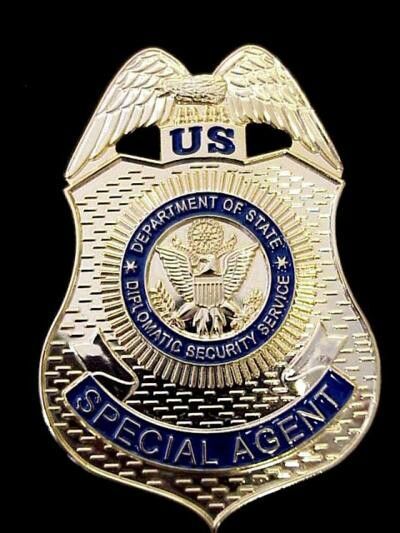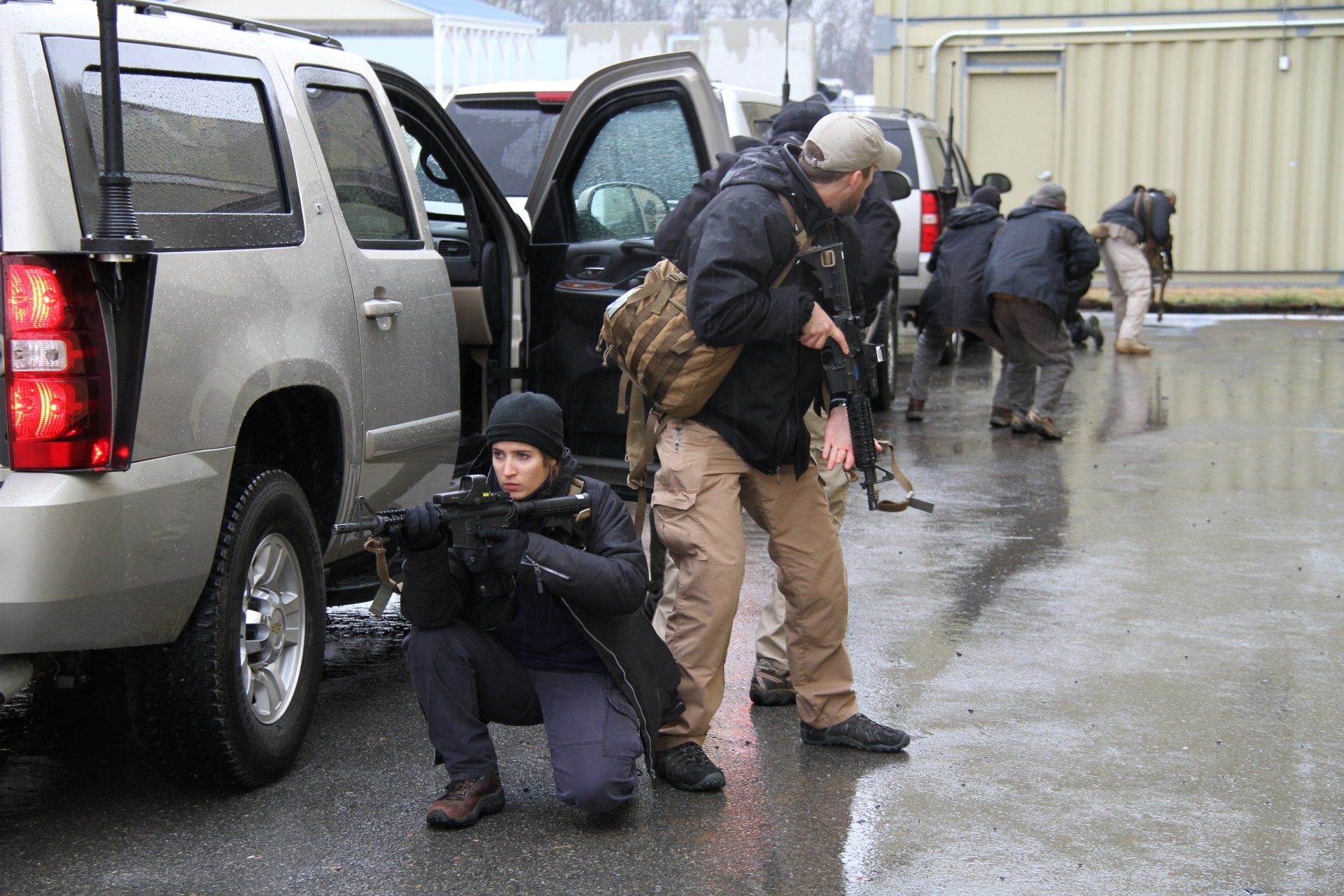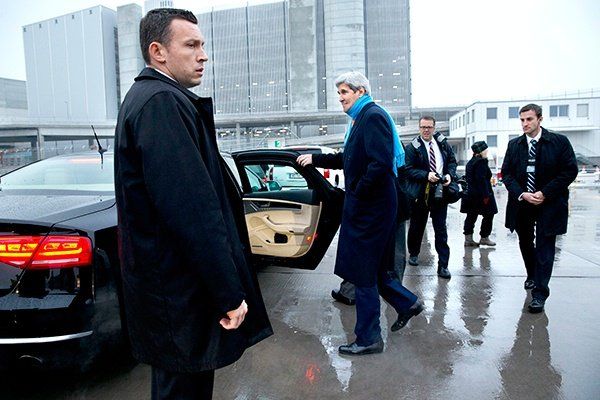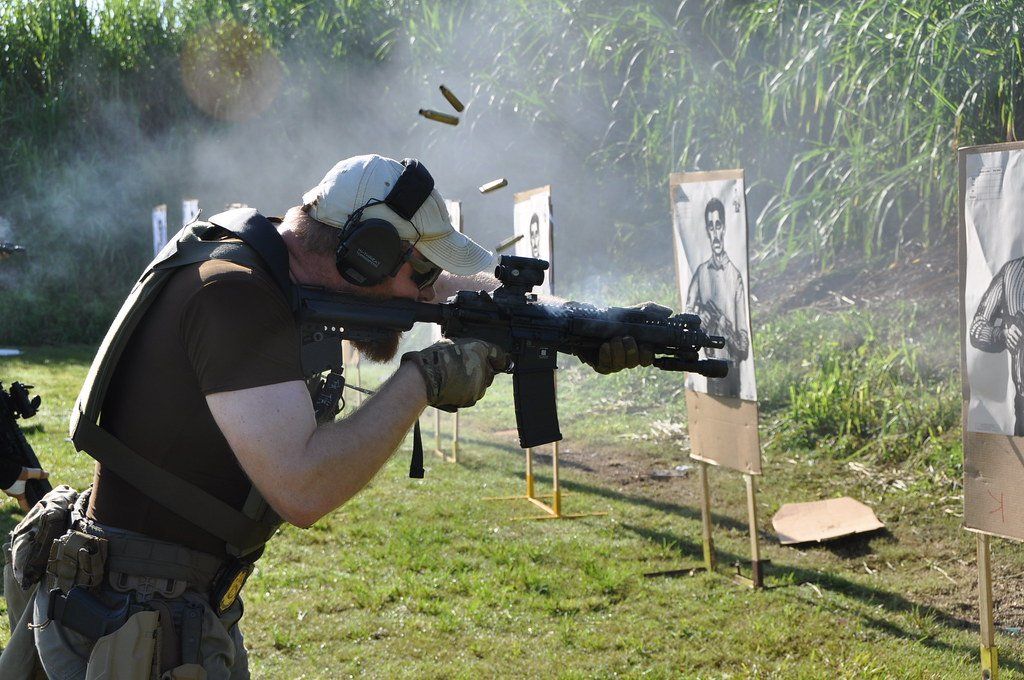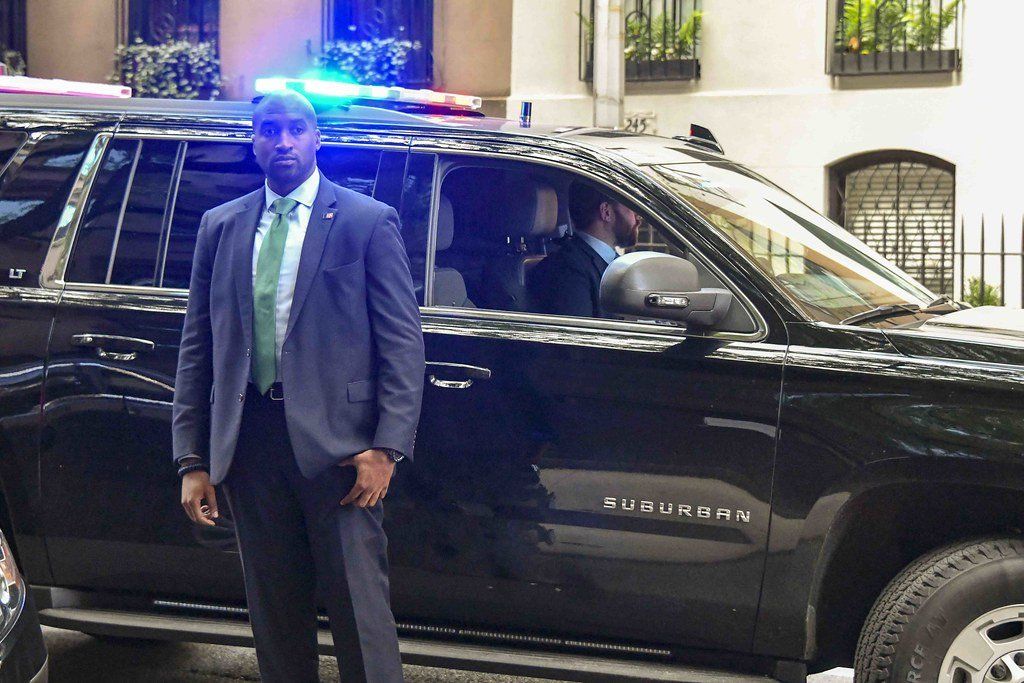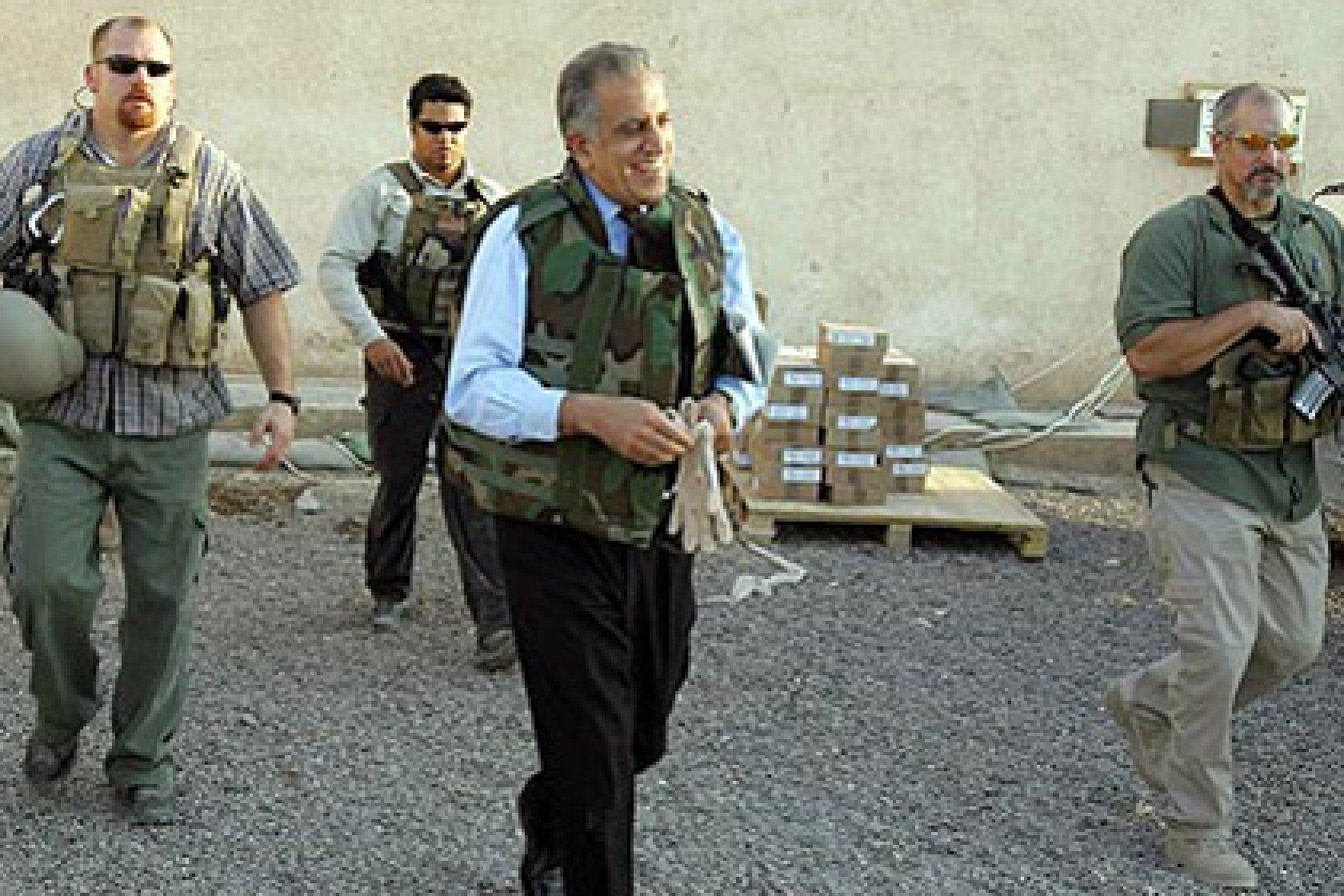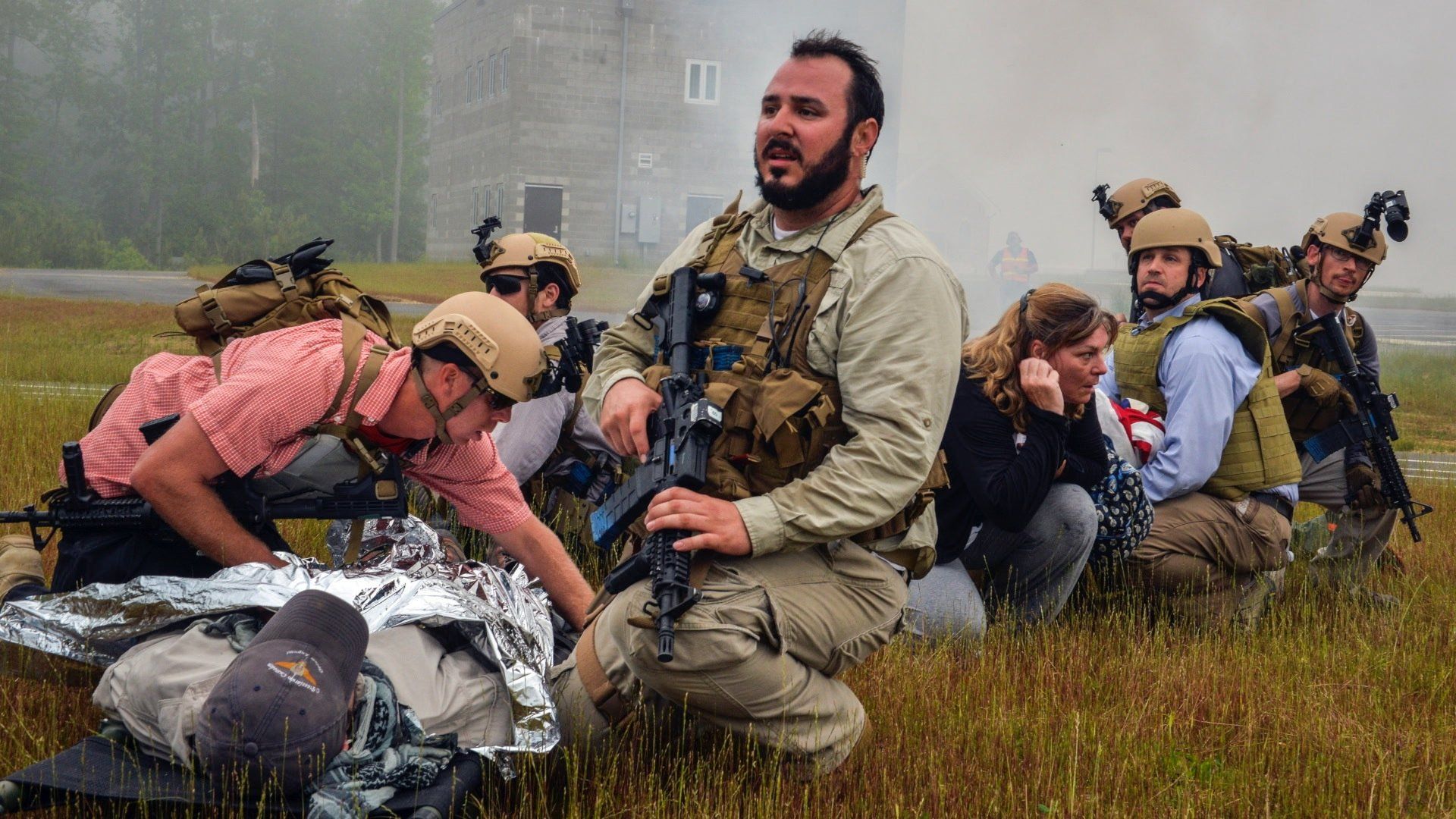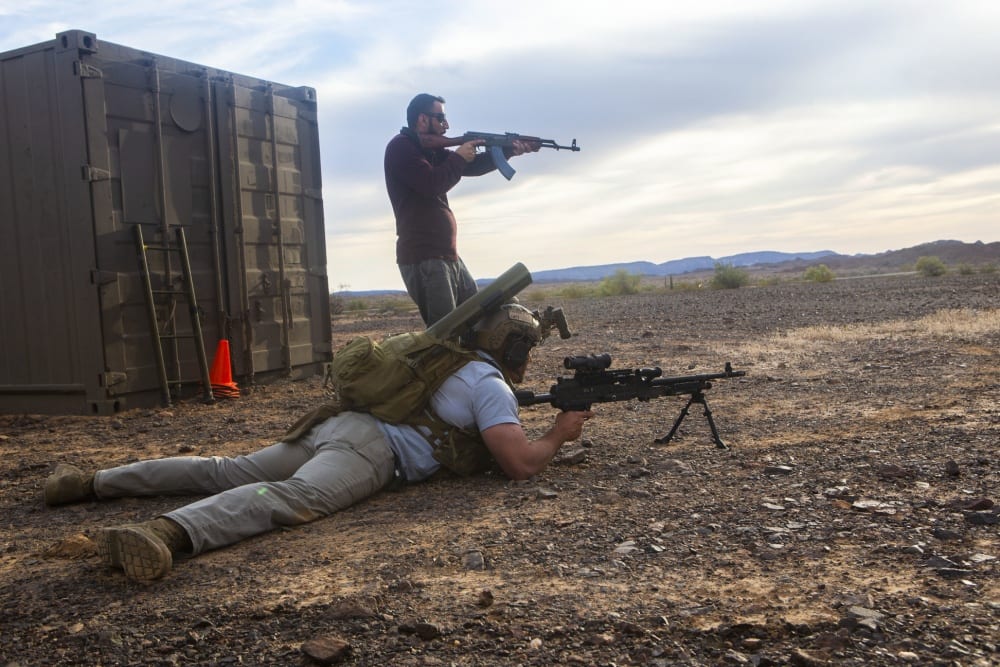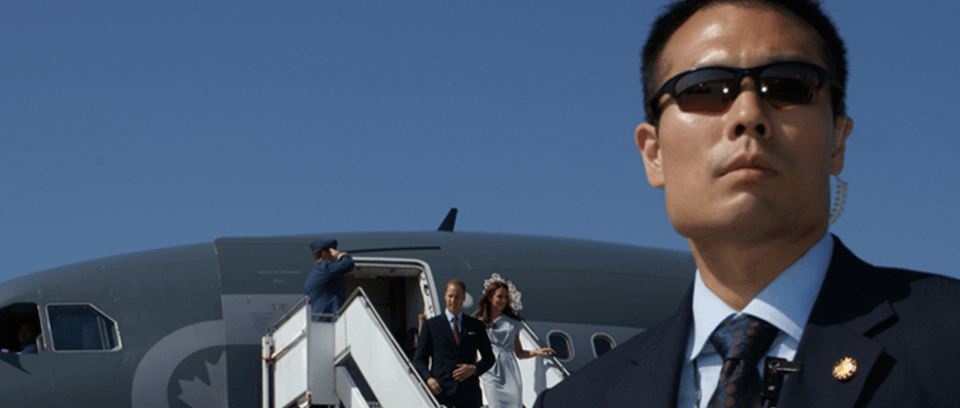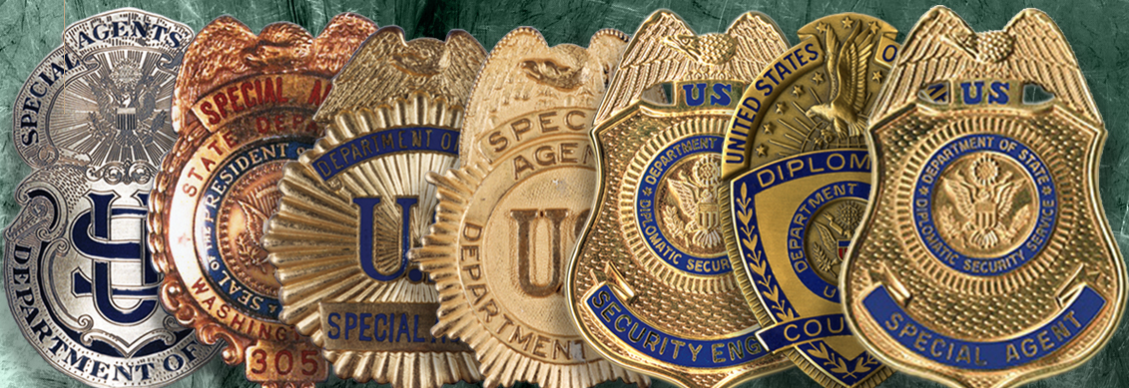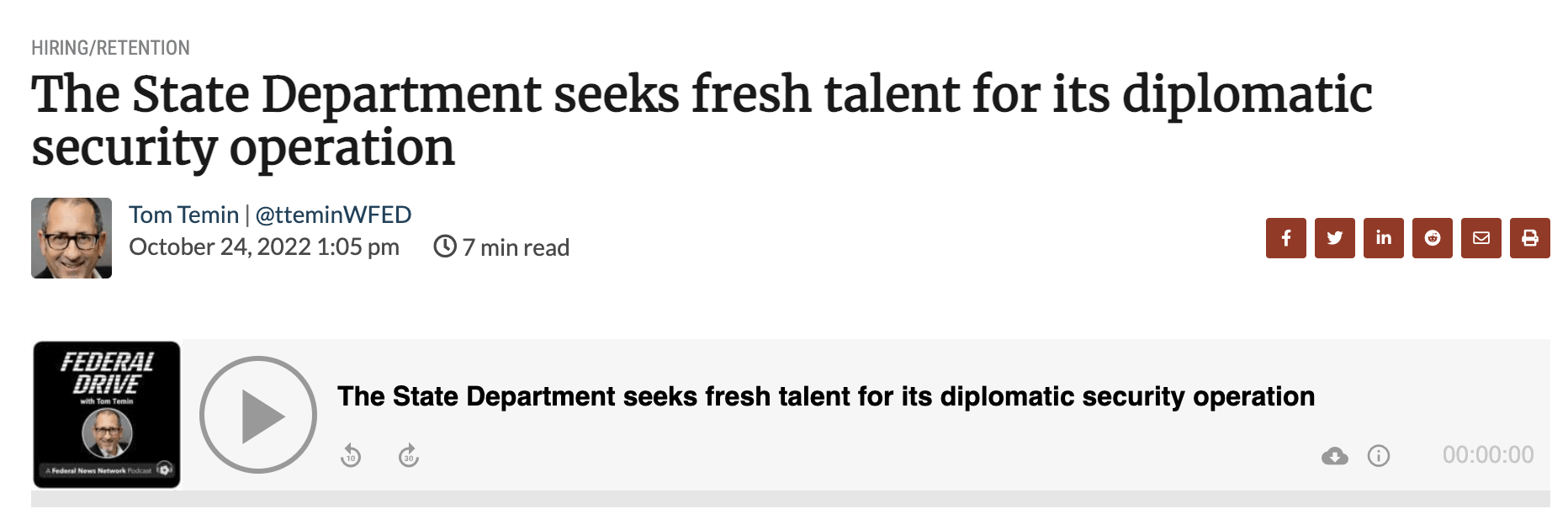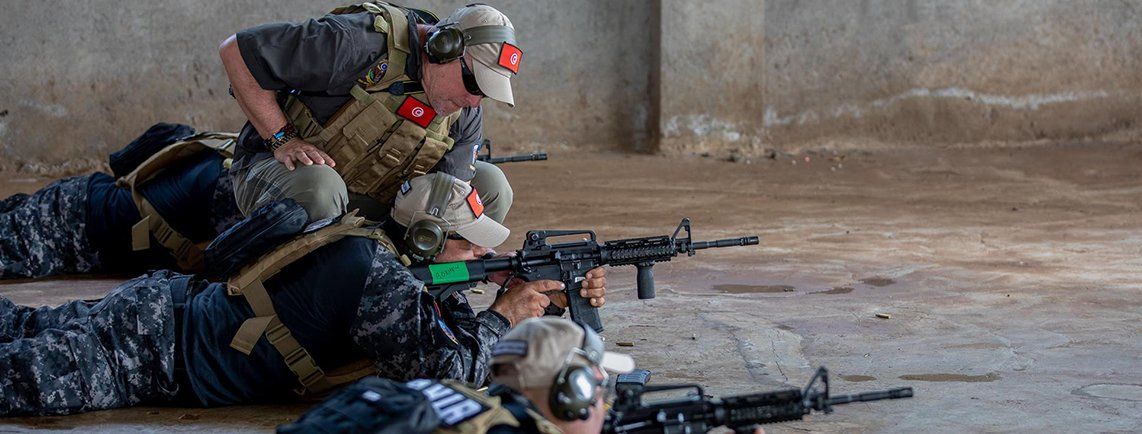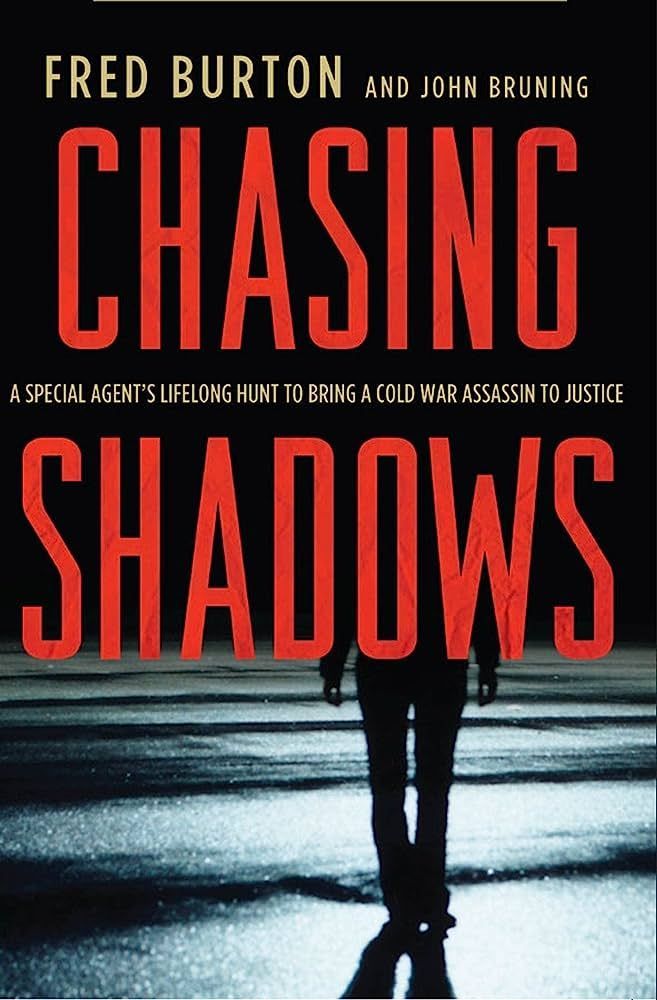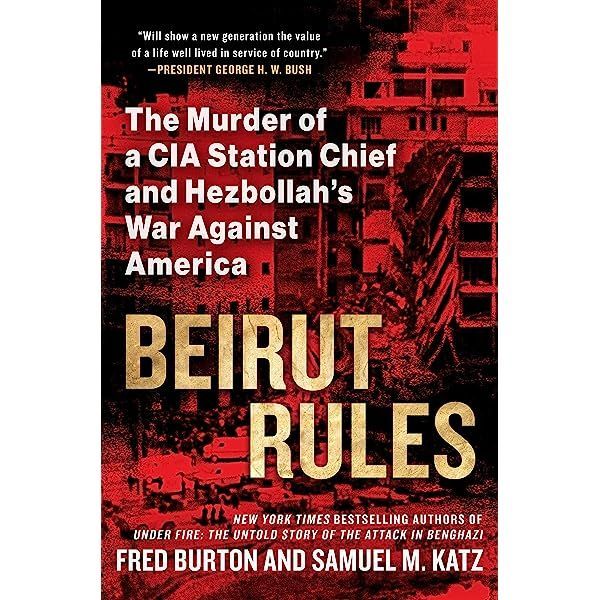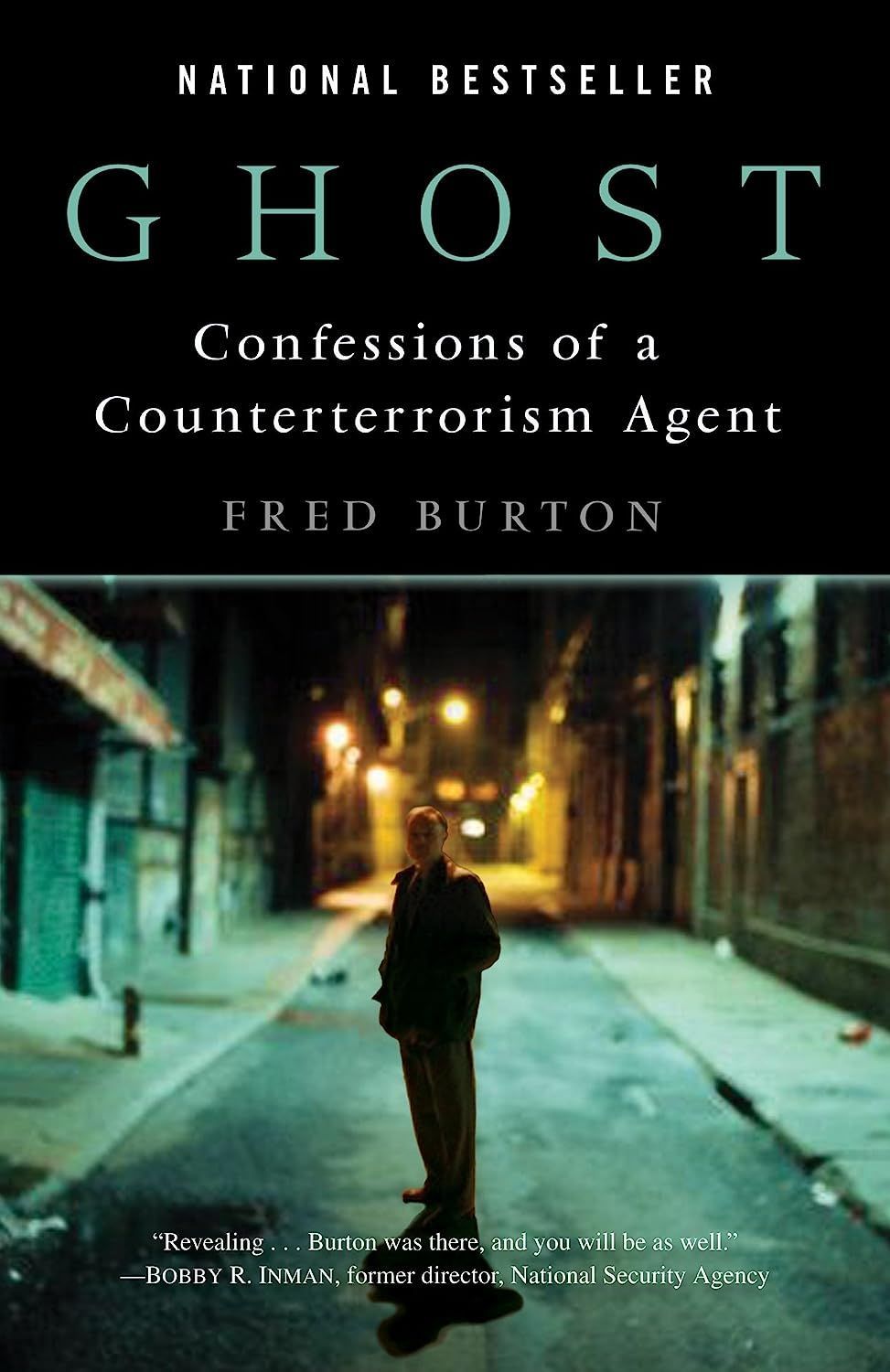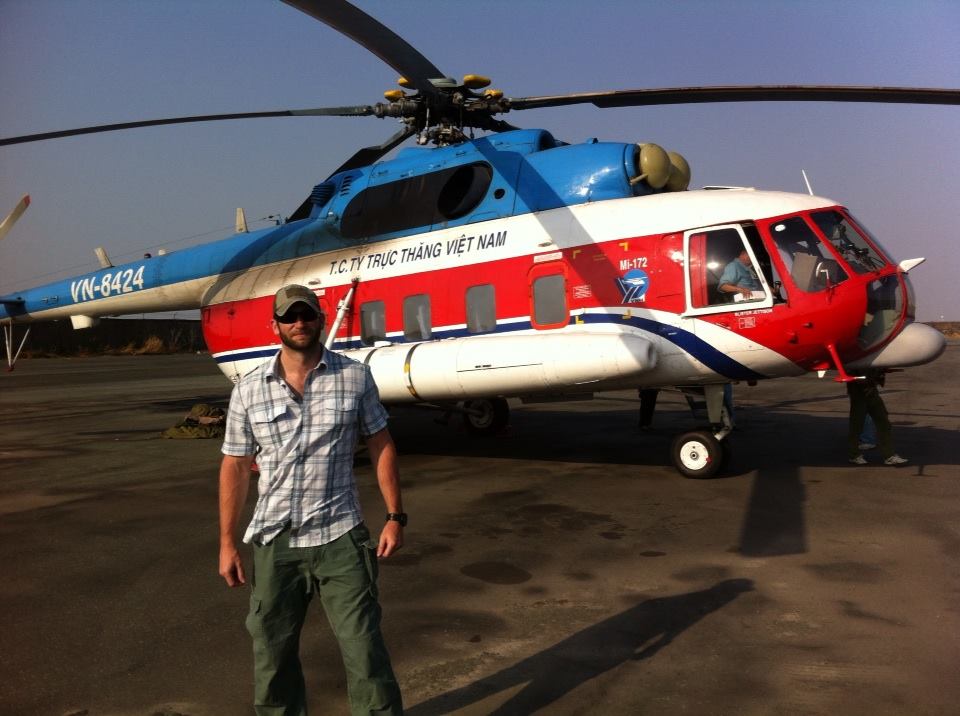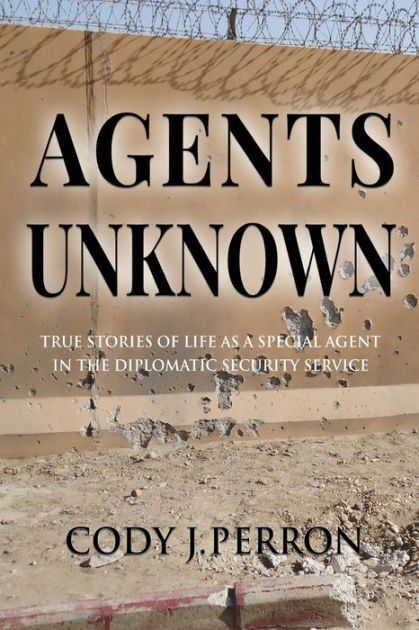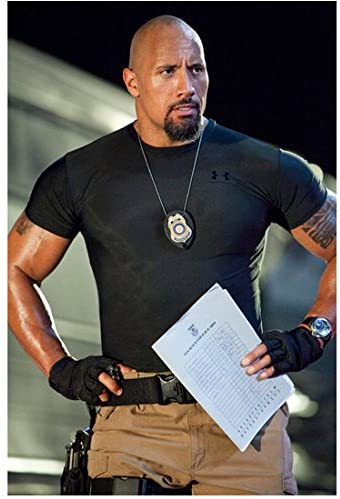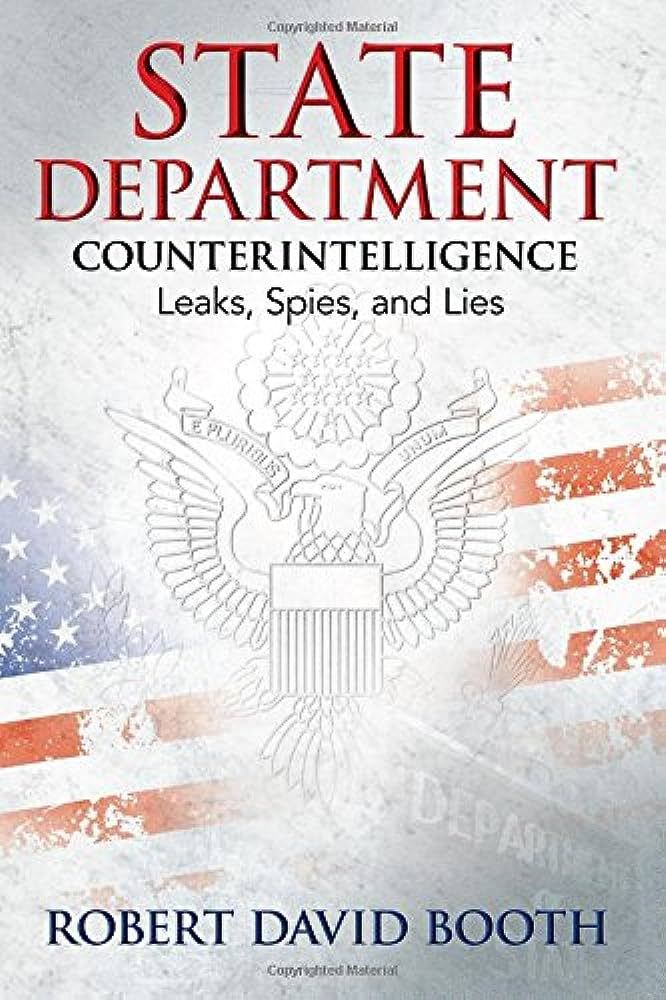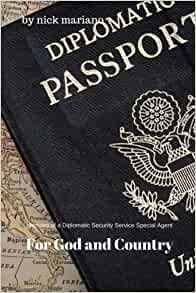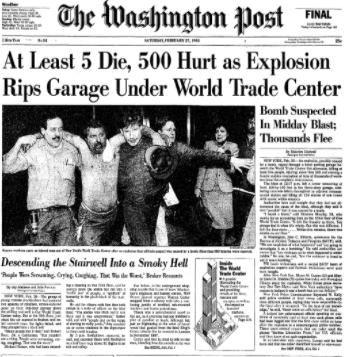About DSS
Diplomatic Security Service (DSS) is located within The Bureau of Diplomatic Security (DS) and with approximately 2,400+ special agents, is the security and law enforcement arm of the U.S. Department of State. Every diplomatic mission in the world operates under a security program designed and maintained by Diplomatic Security. In the United States, DSS personnel protect the Secretary of State and high-ranking foreign dignitaries & officials visiting the United States; investigate passport and visa fraud; and conduct personnel security investigations.
DSS is located in 30 U.S. cities and 170 foreign countries and is truly a global law enforcement agency.
DSS Overview
DSS is a premier
overseas-centric law enforcement agency that has a secondary investigative mission. The
security of embassies , ambassadors, visiting heads of state, and diplomatic personnel are of the utmost national importance and take up significant resources within DSS. Additionally, DSS maintains a sizable full-time protective service detail for the
Secretary of State . The secondary law enforcement mission is severely limited in scope to
passport & visa fraud . DSS additionally manages a comprehensive
Security Clearance program for the U.S. State Department.
Straight Talk - DSS
DSS is the lead law enforcement agency at every U.S. Embassy or Consulate throughout the world. The head DSS Special Agent (Regional Security Officer) reports directly to the Ambassador and has the final say on all security related matters. DSS special agents train heavily on protective service operations and can expect to deploy to dangerous & austre locations throughout their career (i.e. Iraq). Domestically, DSS also has significant responsibility in providing security for visiting heads of states at diplomatic events (ie UN General Assembly). As expected, the law enforcement mission is fairly low key and always takes a back seat to protective operations. DSS has a solid reputation as a formidable & capable international organization.
DSS Minimum Special Agent Requirements
You must meet the following requirements at the time of application:
- Be a U.S. citizen and available for worldwide service.
- 4-Year Degree
- At least 20 years old and not older than 36 years.
- Fit for physical exertion and pass a pre-employment physical readiness test.
- Able to obtain/maintain a Top Secret Security Clearance and TS/SCI access.
- Able to obtain an appropriate Foreign Service Medical Clearance.
- Able to obtain a favorable Suitability Review Panel determination.
Special Agents must be willing and able to travel extensively, and on short notice, throughout the world using whatever means available. Traveling and assignments abroad may involve working in remote areas where traditional comforts and medical facilities are limited. SAs may be required to travel to locations of civil unrest, where conditions are potentially hostile, and where performance of duties are conducted under hazardous circumstances.
DSS Selection
Potential applicants must apply to an open posted vacancy announcement on their website. Once the announcement is closed, applicants are generally evaluated as follows:
1. Online Application
2. Online 25 minute essay & 40 minute multiple choice screening questionnaire
3. Qualifications Questionnaire (20 minutes)
4. Written Case Study Exam (50 minutes)
5. Personal Assessment Interview with Board of Examiners & DSS SA (Official Guide)
6. Medical Exam
7. Fitness Test (DSS Fitness Guide / Video)
8. Background Investigation
Once all phases are successfully completed, candidate names are placed on a rank-order register. Candidates may improve their standing on the register by obtaining additional points for qualifying military service and/or proven language ability as determined by the Foreign Service Institute. Final selection for SA position is made only from among candidates possessing the best qualifications. Selected applicants will be notified of an Oral Assessment (OA) requirement in Washington D.C. or select alternate sites within the U.S.
This DSS Special Agent position is a 2501 Foreign Service position equivalent to the 1811 CS Series.
DSS Internship Program
The Foreign Service has a robust internship program with various placements, to include those with the Bureau of Diplomatic Security. Review the DSS Internship Brochure or the official State Department Internship webpage to learn more. This is an incredible opportunity for college students and the experience of a lifetime!
Dating back to the origins of diplomacy and related security problems, this 88 page document is a fascinating historical overview of the rich history behind the modern day Diplomatic Security Service. Additionally, the 1985 Secretary of State Advisory Panel on Overseas Security Report (aka "The Iman Report") was vital to establishing the modern day version of the Bureau of Diplomatic Security.
What to Expect at DSS
New Special Agents normally are typically assigned to one of the domestic Field Offices for their first 3 years of service (including training), or possibly to a smaller Resident Agent Office. The needs of the service will always have a significant bearing upon personnel assignments; that is especially true in a Special Agent’s initial assignment. After the initial duty assignment, Special Agents are expected to serve a substantial portion of their careers living and working abroad and can expect to rotate every few years between an overseas assignment and a domestic office/Washington DC.
Domestically, Special Agents may be assigned to provide protective services for the Secretary of State, and other U.S. officials, or visiting foreign dignitaries. Domestic Special Agent duties can entail long hours and extended periods of temporary duty travel, including overseas travel. Domestic assignments include criminal investigations related primarily to the enforcement of statutes protecting the integrity of U.S. passports and entry visa documents. Special Agents may also conduct background investigations for individuals desiring employment with the Department of State, or updating the security clearances of Department of State employees.
When assigned abroad, Special Agents serve as security program managers at U.S. diplomatic or consular posts. At Foreign Service posts, Diplomatic Security Special Agents are referred to as Regional Security Officers, and are responsible for the administration of a broad range of security services to protect Foreign Service personnel, facilities, operations, and information against foreign intelligence, criminal, and terrorist activities. The Bureau of Diplomatic Security also conducts overseas investigations for the Department of State and other federal agencies.
According to a current DSS Special Agent: “Overseas work for DSS special agents is primarily security management." Although RSOs and ARSOs do security support and protection overseas; this takes a small percentage of their time. ARSOs generally focus on managing the guard force, bodyguards, and Marine Security Detachment. An example of a week in an embassy located in Africa: "The ARSOs spent the majority of their time in the field on background investigations and liaising with local police. The RSO stayed at the embassy and managed security preparations in response to political or criminal changes in the country; responded to a threat against a U.S. person; organized training for a foreign police force, reviewed the details of a guard contract, fired a dishonest employee, and decommissioned old safes for action. “
A Conversation With
DSS Special Agents
On May 14, 2020, the Diplomat in Residence Program hosted an online interview with two actual DSS Special Agents. Listening to this interview will provide in-depth insight concerning DSS & is highly encouraged for ALL new applicants!
Watch Interview
Basic Special
Agent Course
Mobile Security Deployments
Mobile Security Deployments (MSD) are specialized teams of DSS special agents that can be called upon to defend overseas posts in critical situations. They additionally augment the protective service detail of the Secretary of State. MSD is highly capable & self sufficient in hostile environments. Read More
A Profile
Retired Special Agent Fred Burton
Retired Special Agent Fred Burton is a legend among the Diplomatic Security Service (DSS) and his contributions range from helping facilitate the capture of wanted terrorist Ramzi Yousef (93 World Trade Center Bombing) to the investigation of Israeli Prime Minister Yitzhak Rabin's assassination.
Mr. Burton is a true public servant and his books provide an incredible insight into contemporary history. Check out his interview on the Off The X Podcast (Episode 19).
SA Profile Cody Perron
Perron was formerly a DSS Special Agent from 2009 - 2018; ultimately turning in his globe trotting diplomatic badge to focus on a family. Cody is now the host of a podcast called "Off the X" and author of the book "Agents Known," which chronicle his adventures with DSS. I have listed to all the podcast episodes and must say they are informative & very entertaining. Additionally, the Cody Perron YouTube Channel is a must-watch for applicants!
DSS in History Benghazi
On 9/11/2012, a coordinated terrorist attack resulted in the destruction of the American Diplomatic Compound in Benghazi, Libya, and the death of two State Dept. personnel; including then U.S. Ambassador Christopher Stevens. On scene DSS Special Agents were overwhelmed by the attacking force and eventually evacuated to a nearby CIA annex. A secondary coordinated attack on the CIA Annex resulted in the death & injury of additional US personnel. Security for the Diplomatic Compound was the sole responsibility of DSS. The incident became a political firestorm & changed DSS forever.
Podcasts about Diplomatic Security Service
I found this website that hosts a consolidated list of 27 podcasts episodes pertaining to the Diplomatic Security Service. It is an excellent way to learn more about the DSS Mission.
DSS SAIC Interview
The site Go Law Enforcement recently did an excellent interview with DSS Special Agent in Charge Patrick Mills & gives great insight into the evacuation of US Embassy in Venezuela. Read More
DSS Related
Website Links
Check out these links for additional information:
DSF provides timely financial support and charitable contributions to members, & their immediate family, of the Bureau of Diplomatic Security & colleagues in the law enforcement & US foreign affairs community.
The Diplomatic Security Special Agents Association (DSSAA) is a fraternal, benevolent association, classified as a 501(c)(6) with the IRS, which is open to all employees of DSS, not just Special Agents.
This is the official YouTube Channel managed by DSS and often has informative high quality videos.
This is the official Facebook Page run by DSS & often includes info. about vacancies.
History of the Bureau of Diplomatic Security
Official - Free Electronic Book
This is a comprehensive and in-depth historical analysis of the Bureau of Diplomatic Security. It is a must read for all those interested in DSS!
International Law
Enforcement Academies
The work of the five ILEAs sponsored, funded, and administered by INL is an important part of the interagency U.S. effort to combat international crime. The ILEAs advance the anti-crime effort through building the capacity of foreign criminal justice partners of the United States. Course are taught by special agents.
DSS in History 1993 WTC Bombing
Ramzi Yousef was the mastermind of a 1993 truck bombing in the parking garage of the NYC World Trade Center. The extensive damage resulted in 6 deaths and 1000+ injuries.
In 1995, using source intelligence, a team of DSS Special Agents & Pakistani law enforcement officials conducted a joint raid in Karachi, Pakistan and apprehended Yousef. Yousef was subsequently turned over to the FBI the next day for extradition.
Diplomatic Security Service - 2021 Olympics
The Special Agents of the Diplomatic Security Service (DSS) have a prominent and vital role in ensuring the safety and security of U.S. Olympic athletes during this international event.
2019 Iraq U.S.
Embassy Attack
On December 31, 2019, the U.S. Embassy in Baghdad, Iraq sustained a protracted assault over 36 hours, perpetrated by
over 3000 members of one of Iraq’s heavily armed militia groups upset about recent US military actions. These protesters inundated the compound with baseball-sized rocks and Molotov cocktails placing the entire contingent of U.S. personnel and third-country nationals under direct threat. The agents put out fires which prevented fuel tanks from going ablaze, evacuated the guard force and other employees just in time before the building they were in was engulfed in flames, and fortified the gates preventing additional intruders from gaining access to the compound. As the day progressed, the protesters threw combustible material over the wall landing at the bottom of the watch towers which smoked U.S. personnel out of the towers. At the same time, the protestors pulled down the Embassy’s cameras around the perimeter. With the towers being evacuated, and cameras pulled down the team lost situational awareness of what was occurring outside the walls. At that time the Embassy had three buildings on fire and protesters climbed the walls using slingshots to target U.S. personnel with marbles and rocks complicating any response. Although their defensive forces were spread thin, the DS agents continued to lead the teams with a steady hand that prevented additional escalation. The actions of the six DS agents throughout the attack prevented serious bodily harm and death to U.S. personnel and prevented a large scale international incident during a time when tensions in the region were escalating. Read More
